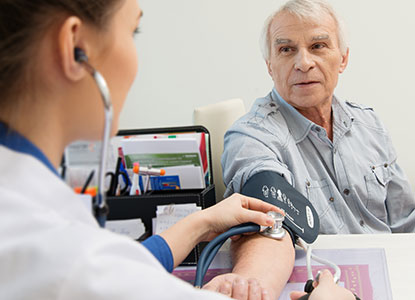By Richard Johnstone | 14 April 2014
More than 7.5 million people are to benefit from extended GP opening hours after the Department of Health allocated £50m to pilot late night and weekend appointments, it was announced today.

Longer hours will be made available at 1,147 practices across England after GPs bid for money to help them extend services through the government’s GP Access Fund.
The extra money was first announced by Prime Minister David Cameron at the Conservative Party’s conference in Manchester last October. The funds can be used to introduce seven-day opening and 8am-8pm appointments as well as modernising existing services through the use of communications technology.
Announcing the awards, Cameron said there had been ‘a great response from doctors, with lots of innovative ideas’.
‘We will now see over seven million patients given weekend and evening opening hours, alongside more access to their family doctor on the phone, via email or even Skype. This is an important step and good news for patients.’
However, shadow health secretary Andy Burnham said that the government had ended the last Labour government’s guarantee of a GP appointment within 48 hours.
‘The big problem with this new plan is that it won’t benefit millions of people,’ Burnham added.
‘For the vast majority who are outside of this scheme, things will carry on getting worse and they are being told to expect to wait a week for a GP appointment. No wonder more and more people are turning to accident and emergency, which has just had its worse year in a decade.’
Also today, Health Secretary Jeremy Hunt and NHS England chief executive Simon Stevens announced the creation of a Transforming Primary Care programme to provide proactive care to elderly people with complex care needs.
Under the scheme, around 800,000 people, mostly aged over 75, will be offered an enhanced GP service, including individual care plans, a named GP responsible for their care, and same-day GP access when they need it.
Hunt said this formed part of plans to shift care for the elderly from hospital to the home. There are currently around 4.2 million people over 75 in England, but this is expected to rise to 6.3 million by 2026 – and by 2018, 3 million people will have three or more long-term conditions.
As part of these changes, Hunt said the government was committed to training 10,000 more frontline community staff, including GPs and nurses, by 2020 to ensure patients got the support they needed to manage conditions in the community rather than being admitted to hospital.
‘Moving nearly a million people onto proactive care plans is one of biggest changes that we need to make in our NHS. People want to know that their parents and relatives will get constant care if they have a long-term condition,’ he said.
‘Many doctors already give great care but I want to make sure this is completely co-ordinated to head off problems and keep people from going to hospital unnecessarily.’
Stevens added that freeing up hard working family doctors to spend more time with their sickest patients, and by making it easier for other patients to get through to their GP surgery for help and advice at evenings and weekends would help patients, doctors and the NHS as a whole.





















